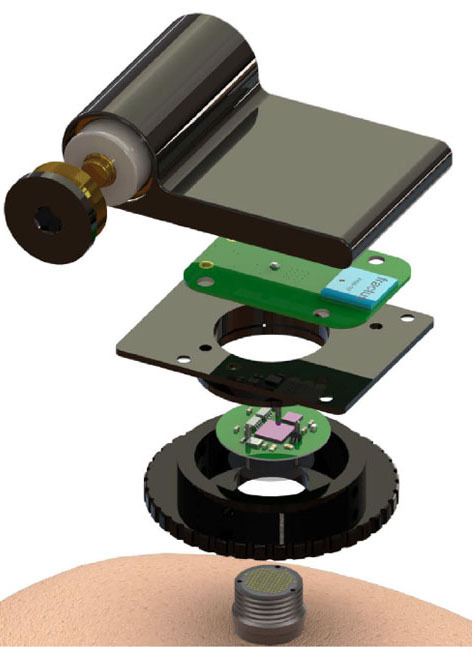First Human Use Of A Wireless High-Bandwidth Brain-Computer Interface Completed
A group of researchers at Brown University have demonstrated the first human use of a high-bandwidth wireless brain-computer interface (BCI) with a human. The team says this is an important step towards a fully implantable intracortical brain-computer interface system. While BCI's have been tested in clinical trials for years, they required cables to connect the sensing array in the brain to computers able to decode the signals and use them to drive external devices.
BrainGate clinical participants with tetraplegia have demonstrated an intracortical wireless BCI using an external wireless transmitter. The system can transmit brain signals at single-neuron resolution and in full broadband fidelity without being physically tethered to a decoding system. Cables traditionally found in BCI are replaced by a small transmitter about two inches in its largest dimension that weighs a bit over 1.5 ounces.
The sensor unit sits on top of the user's head and connects to an electrode array within the brain's motor cortex using the same port used by wired systems. The most recent study involved two clinical trial participants with paralysis using the BrainGate system with a wireless transmitter. The two participants used the wireless transmitter to point, click, and type on a standard tablet computer.

Researchers found that the wireless system transmitted signals with virtually the same fidelity as the wired system. Participants in the trial are also able to achieve similar point-and-click accuracy and typing speeds using the wireless system. Researchers say they've demonstrated that the wireless system is functionally equivalent to the wired system that has been the gold standard in BCI performance for years.
The successful study represents an early but essential step toward a major objective in BCI research. That objective is a fully implantable intracortical system to help restore independence for people who have lost the ability to move.
